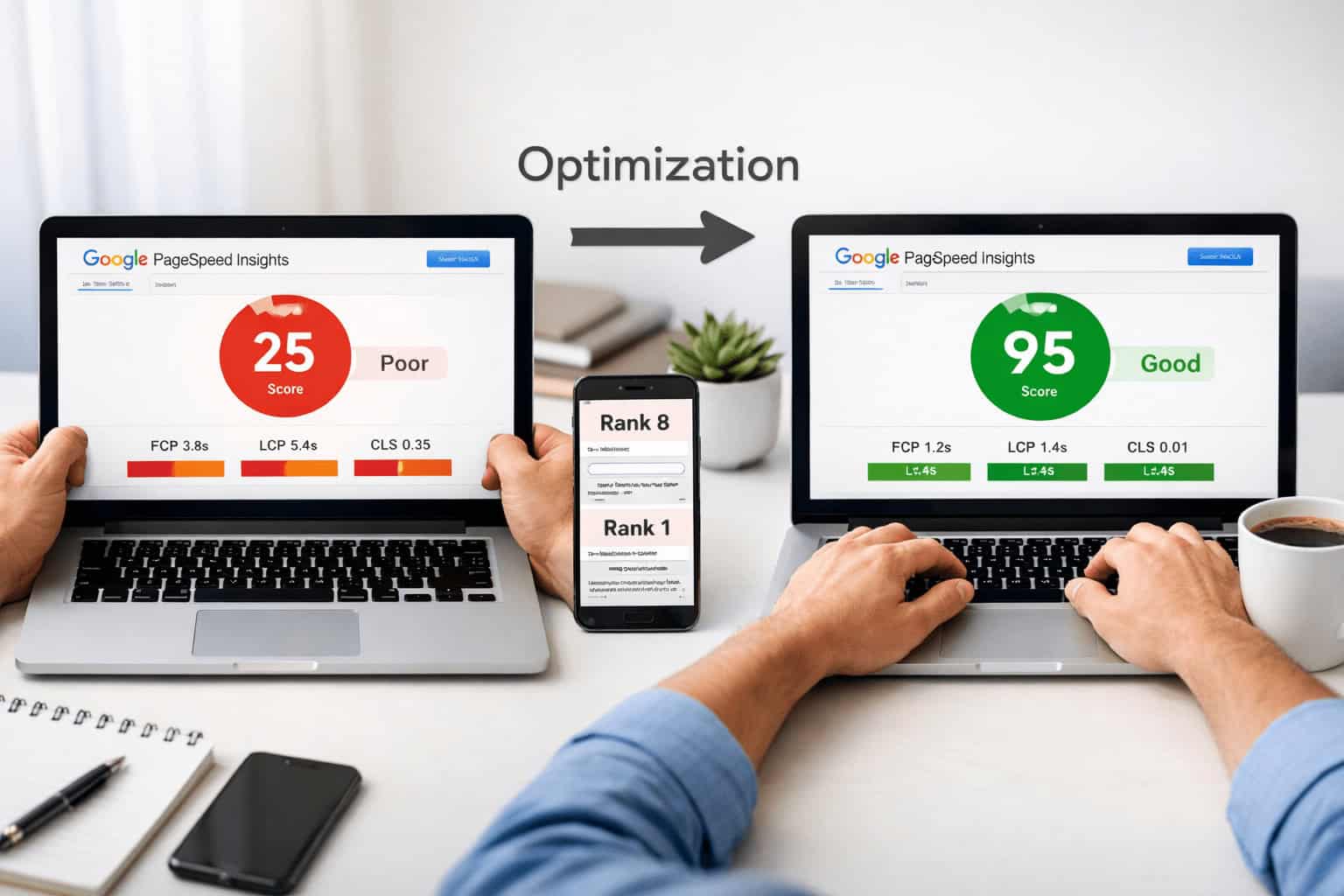In the age of fast internet, your customers expect fast results. Slow websites, in part because of poor web hosting services, are a big problem for businesses. They can deter potential customers from visiting or staying on your site. That means you could unintentionally send them to your competitor’s website.
So a slow website could be costing you business. In fact, an incredible 40% of people will abandon a website if it takes more than 3 seconds to load.
It’s not just your customers who are penalizing slow loading speeds, though. Google is, too.
CNet reported that Google is penalizing websites for slow load times by sending them further down the results list. They know that searchers want nearly instantaneous results. To keep them happy, they’ll show them more websites that can deliver content quickly.
So if you have a slow website, what can you do about it? It starts with how you build your website. Then your speed will depend on the web hosting services you choose to use.
3 Ways to Fundamentally Speed Up Your Website
1. Build it for speed
Your website is your business’s home on the internet. Just like a real house, it’s often easier to build a new house than it is to renovate an old one.
If slow load times plague your website, you might want to consider rebuilding it from the ground up.
Many slow websites use multi-functioning themes. These decrease the build time for the developer by offering an out-of-the-box website solution. Unfortunately, though, they can include a lot of unnecessary tools that end up bloating the website and slowing it down.
Instead, start your new website with a stripped-down theme. From there, you can carefully select the plugins you need.
This lean approach is the perfect foundation to build an SEO-optimized website for your business.
Building your internet home this way gives you the strongest possible foundation. That’s good for both the speed and the stability of your website.
2. Consider your web hosting options
Once you have your home built, you need to find a place for it to sit on the internet. That means you need to find web hosting services, which will give you a plot of virtual land for your home in cyberspace.
To do this, you have a few options, each with their own pros and cons.
A. Use a hosting company
This is the least expensive method for acquiring a piece of cyberspace real estate. There are a lot of well-known hosting companies, such as GoDaddy, that offer this option.
While affordable, it’s not always the best solution for a website. That’s because you’ll be sharing your plot of cyberspace with a bunch of other people, and they may not make good neighbors. Some of them might hog all your resources. Others might engage in email spam, resulting in blacklisting your IP address along with theirs. So approach this option carefully.
B. Use a VPS
This approach will cost you slightly more but results in better security for your internet home. With this option, you get a fence to surround your home and separate you from your neighbors. This is a “virtual private server.”
This VPS means each neighbor has access to their own resources but can’t take any of yours. Plus, no one will penalize your website for any activities happening on their piece of land. However, it won’t keep you safe from all issues. If something big happens to the land, it’s going to affect everyone’s house.
C. Use your own server for personal web hosting
This is the most expensive option you have, and it’s like you are buying all the land for yourself. You’d set up a dedicated server, meaning you own all the land and are responsible for all the upkeep yourself.
You might use a website maintenance company or manage it all yourself with a lot of technical know-how.
3. Put CDN caching to work
The point of your website is to deliver content to your visitors. The faster you can deliver that content, the better. That’s where caching can help.
Caching means you are storing content for reuse, increasing the delivery speed.
While caching could be its own article, the type of caching that is most important for speed is CDN (content delivery network) caching. This can dramatically enhance your site speed and reliability.
Remember that the faster the speed, the more visitors you are going to attract. That makes a CDN an effective tool to add to your marketing arsenal.

What is a CDN?
A CDN is made up of connected servers all over the world. These servers store copies of your website content. When visitors visit your site, these servers are able to quickly and efficiently deliver your content to the visitor. That’s because the CDN already has the content.
You can think of a CDN as a digital logistics team. This team finds the most efficient route possible to bring your website’s content to your existing and potential clients.
CDNs will deliver different types of content, too, including:
- Static content. This is the content that won’t change much on your website.
- Dynamic content. These are the parts of your website that are always changing.
- Hosted content. This is content that’s on your website but lives somewhere else, which is streaming video or audio.
Why do I need a CDN?
- A CDN reduces the distance between your website and your visitor. It assigns delivery of your content to the closest server, which speeds up your load times and gets your content to your customer faster.
- As your digital logistics team, it can also reduce the time it takes to deliver your content. It will find the least congested routes on the fastest servers.
- A CDN will reduce the stress of your original server by spreading out the work to other servers. This can make your own server faster.
While not available on all CDNs, some will help strengthen the security of your website, too. They do this by bringing together all the security resources available on other servers for your own use. This is known as creating a WAF (web access firewall).
Is Your Website Struggling With Slow Speed?
Speeding up your website’s load time with a good web hosting solution is key to bringing in more visitors and boosting your ranking in search results.
If you are struggling to speed up your load times, we can help.
Get in touch with our team and let’s troubleshoot what’s slowing down your site. Then we’ll find the solutions you need to speed up your site and make the best possible home for your business online.



